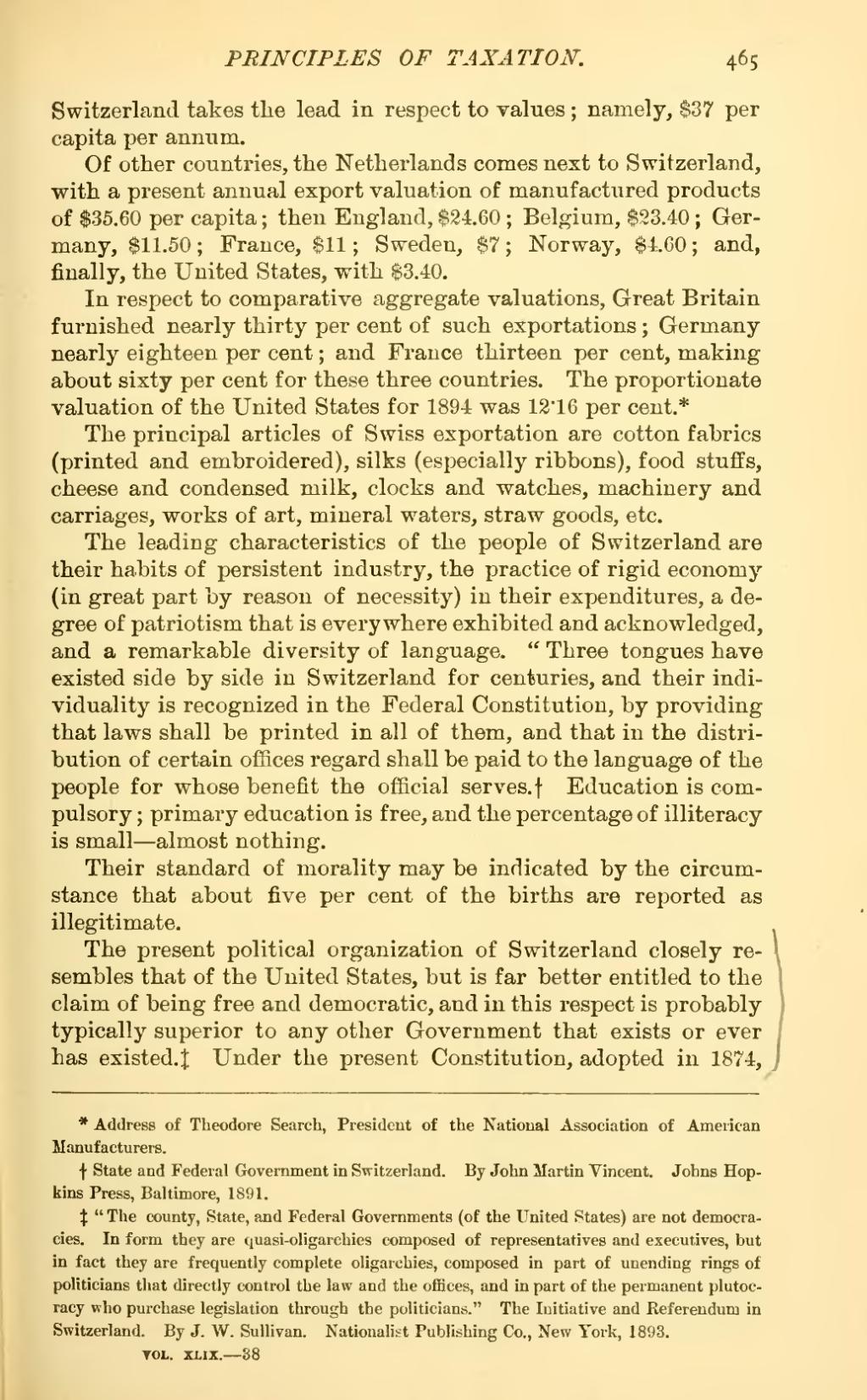Switzerland takes the lead in respect to values; namely, $37 per capita per annum.
Of other countries, the Netherlands comes next to Switzerland, with a present annual export valuation of manufactured products of $35.60 per capita; then England, $24.60; Belgium, $23.40; Germany, $11.50; France, $11; Sweden, $7; Norway, $4.60; and, finally, the United States, with $3.40.
In respect to comparative aggregate valuations. Great Britain furnished nearly thirty per cent of such exportations; Germany nearly eighteen per cent; and France thirteen per cent, making about sixty per cent for these three countries. The proportionate valuation of the United States for 1894 was 12·16 per cent.[1]
The principal articles of Swiss exportation are cotton fabrics (printed and embroidered), silks (especially ribbons), food stuffs, cheese and condensed milk, clocks and watches, machinery and carriages, works of art, mineral waters, straw goods, etc.
The leading characteristics of the people of Switzerland are their habits of persistent industry, the practice of rigid economy (in great part by reason of necessity) in their expenditures, a degree of patriotism that is everywhere exhibited and acknowledged, and a remarkable diversity of language. "Three tongues have existed side by side in Switzerland for centuries, and their individuality is recognized in the Federal Constitution, by providing that laws shall be printed in all of them, and that in the distribution of certain offices regard shall be paid to the language of the people for whose benefit the official serves.[2] Education is compulsory; primary education is free, and the percentage of illiteracy is small—almost nothing.
Their standard of morality may be indicated by the circumstance that about five per cent of the births are reported as illegitimate.
The present political organization of Switzerland closely resembles that of the United States, but is far better entitled to the claim of being free and democratic, and in this respect is probably typically superior to any other Government that exists or ever has existed.[3] Under the present Constitution, adopted in 1874,
- ↑ Address of Theodore Search, President of the National Association of American Manufacturers.
- ↑ State and Federal Government in Switzerland. By John Martin Vincent. Johns Hopkins Press, Baltimore, 1891.
- ↑ "The county, State, and Federal Governments (of the United States) are not democracies. In form they are quasi-oligarchies composed of representatives and executives, but in fact they are frequently complete oligarchies, composed in part of unending rings of politicians that directly control the law and the offices, and in part of the permanent plutocracy who purchase legislation through the politicians." The Initiative and Referendum in Switzerland. By J. W. Sullivan. Nationalist Publishing Co., New York, 1893.

